“Long ago in a distant land,” an evil entity named Aku attacked feudal Japan. He was defeated by a sword forged in righteousness. When Aku returned, the sword was given to a young samurai, humanity’s only hope against the demon; but, just before winning a victory, this samurai was sent far into the future where he would be powerless to prevent Aku’s eventual domination of Earth and even distant planets. In this future, it has already taken place.
The samurai, nicknamed “Jack,” spends the entirety of the original show run searching for a time portal. He intends to finish off Aku in the past. However, he also stops to help the “innocents” he meets in the future. He is never once tempted to justify ignoring the suffering in the future by claiming he will simply undo this future. He seems to know that his quest may fail. (That, or he doesn’t understand time travel.) The great appeal of Samurai Jack as a character is his selfless determination to do what is right, no matter how painful or difficult.
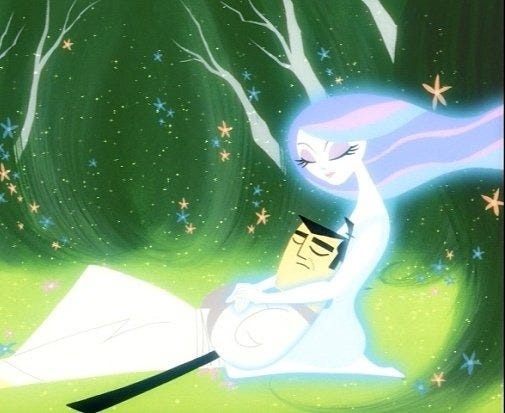
To anyone paying attention, Samurai Jack clearly always was doomed to have a bittersweet if not tragic ending. If Jack succeeded in going back in time, his friends from the future might never exist, and their adventures together would have never happened. If Jack never succeeded in going back in time, his mother and father and all of his people would die in despair, and Jack would be disgraced. But apparently, this unavoidable tradeoff wasn’t evident to every fan. Some seemed not to care at all if Jack’s family was rescued. Others seemed to want the impossible: a victory at no cost. In the 2020 video game, Samurai Jack: Battle through Time, Jack is depicted as having his cake and eating it, too.
Those fans can stomp their feet, but the end of Jack’s journey on Cartoon Network seems more in sync with classical Japanese literature. On that note, the outcome some critics have accused of being sexist has precedent in a genre pioneered by a brilliant female poet. More on that in a moment.
Now, I do have a few complaints. I’m sorry the original composer couldn’t be there. I could have done without the “best of” episode (though it may have been necessary setup for the climactic action scene). I also wish the ending teased in Episode XXXII (above) hadn’t been softly retconned. Finally, I used to play Samurai Jack for all manner of school-aged children, and now that the finale season is full of sex and gore, I feel like a bit of a groomer. But any claim that the final season of Samurai Jack is “bad” is just ludicrous — fueled not by any attempt at objectively evaluating the talent and technique involved but simply by the endless fever-dream of feminist activism.
This final season has a Strong Female Character, an absolute girlboss named Ashi who, despite her talents, doesn’t quite make it, and nothing upsets feminists more than attempts at giving them what they want. Ashi was just a symbol to these people. They didn’t like seeing their symbol destroyed.
Collectivism, or as Aldous Huxley aptly called it, herd-poison, makes one insatiably hungry for blood. A mob cannot be satisfied until they’ve beaten the object of their hatred into unrecognizable pulp (at which point they simply move on to a new target). They think everyone operates this way. If there’s no reason to riot, they will make one up. A mob also has a terrible time enjoying art, because they are constantly trying to shove the art into a political mold. Anything they can use to prop up their agenda is “good” and anything that doesn’t quite fit the narrative is heretical, an enemy out to destroy the foundations of existence.
To the collectivist, whatever happens to a female character must be what the creator thinks all women deserve. To the mob vomiting herd-poison, every story must be allegorical — the Big Bad Wolf is killed by the Huntsman because he is a predator ( pedophile). Cinderella is exalted by Prince Charming because she is deserving (humble). The collectivist decries the Samurai Jack finale because “Ashi deserved better!”
Of course she did. That’s the point.
Ashi is obviously a sympathetic character. Early on in her life, we see her punished for individual thinking. We witness her glimpse the beauty of nature and long to take part in it, only to be brutally beaten for her weakness. We are on her side, and we’re supposed to be. When Ashi’s father, Aku, is defeated in the past, and as a result she is never conceived, Jack is heartbroken. But should Jack bring shame on himself, his father, and his people — and let Aku enslave everyone for millennia— because he loves a woman from the future? Would this not pervert love into evil?
The final season makes it clear that Jack cannot live with himself if he fails his quest. Jack’s parents cry out from the afterlife. “Why have you forsaken us? You never came back!” Generations of Jack’s people suffered under Aku and died, and their souls haunt him endlessly. Thirsty for justice, Jack’s ancestors scream at him to commit ritualistic suicide to restore his honor. Even Jack himself is furious over his failure. Staying in the future is simply not an option.
By defeating Aku in the past, Jack and Ashi make the ultimate sacrifice — the sacrifice of themselves. This is the most heroic path. It is therefore the most beautiful path, even if that beauty is tinged with sadness. Perhaps some fans simply wanted an ending that was only happy, but when has Samurai Jack ever delivered that? There was always something painful in the sweetness.
In Japanese literature, this transience of all life is called mono no aware, “the pathos of things.” Life is flux: gain and loss. We appreciate the value of something more deeply when we become aware of its impermanence. The term mono no aware owes its existence to 18th century literary analysis of an 11th century novel — the first novel ever written, in fact — The Tale of Genji by Murasaki Shikibu, a lady-in-waiting at the Emperor’s court. Shikibu’s protagonist begins life with the loss of his mother. He chases women. Then goes into exile. Then rises to power. Then loses his wife, whom he loves. Even Genji himself dies, but this is not the end of the novel. We find out what becomes of his descendants. Life is an endless cycle of comedy and tragedy. It goes on forever like the ebb and flow of the tides. This is not political activism (which is also transient). It’s insight into the uncomfortable depths of reality.
Mystery novelist Dorothy L. Sayers embraced feminism at the height of her career. She repented of it later in life and warned anyone with an agenda — “religious” or otherwise — that it wasn’t their place to make art “distorted for the sake of doctrine.” The calling of the artist, she wrote in a letter, “is as direct as that of a priest.” She stated in a lecture:
This recognition of the truth that we get in the artist’s work comes to us as a revelation of new truth. I want to be clear about that. I am not referring to the sort of patronising recognition we give to a writer by nodding our heads and observing: “Yes, yes, very good, very true – that’s just what I’m always saying.” I mean the recognition of a truth which tells us something about ourselves that we had not been “always saying” – something which puts a new knowledge of ourselves within our grasp. It is new, startling, and perhaps shattering – and yet it comes to us with a sense of familiarity. We did not know it before, but the moment the poet has shown it to us, we know that, somehow or other, we had always really known it.
I highly doubt that Samurai Jack was trying to make a statement about what Strong Female Protagonists deserve. It was trying to show you real life and all the messy, uncomfortable, but ultimately wonderful aspects of it that we often overlook.
Dead damsels do not in and of themselves indicate misogyny. If that were an iron law, then dead parents would indicate some sort of anti-family narrative. But heroes always lose loved ones. The trope is perennial because it gives our hero a hardship to overcome. In other words, it facilitates the story.
If there is any message in Samurai Jack, one might look to the one Jack blatantly states to the daughters of Aku: “The decisions that you make and the actions that follow are a reflection of who you really are.” If this is creator Genndy Tartakovsky’s worldview, then who he sees Ashi as is not an expendable female character but a brave and beautiful soul whose actions redeem her and reconcile her with the cosmos she longs to take part in.
I mean, uh, “whaaa, everything is sexist” or whatever.

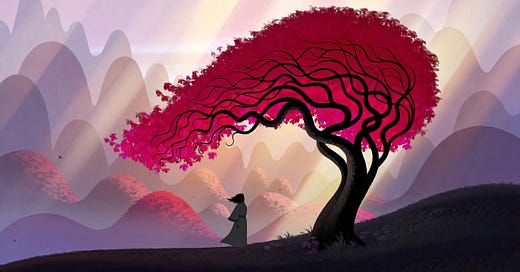


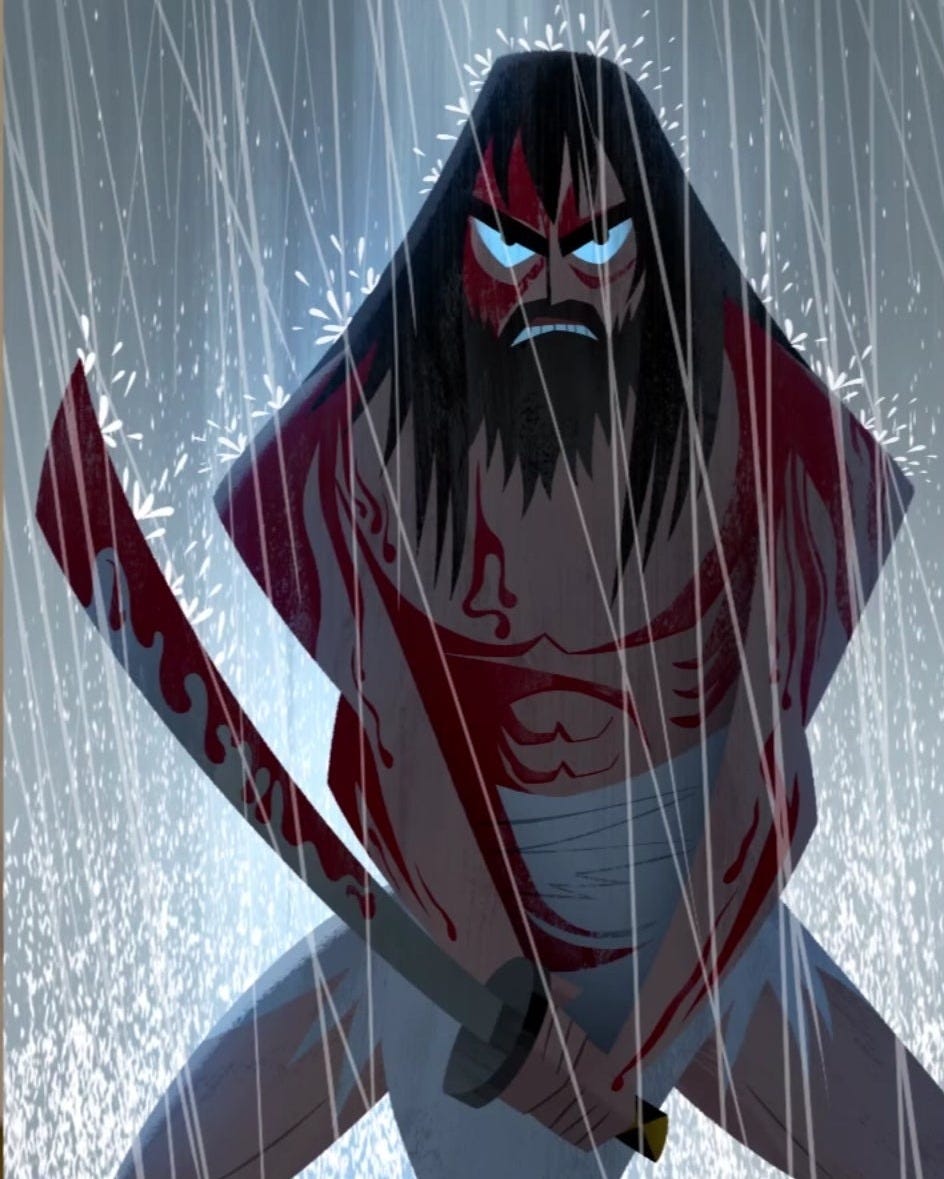
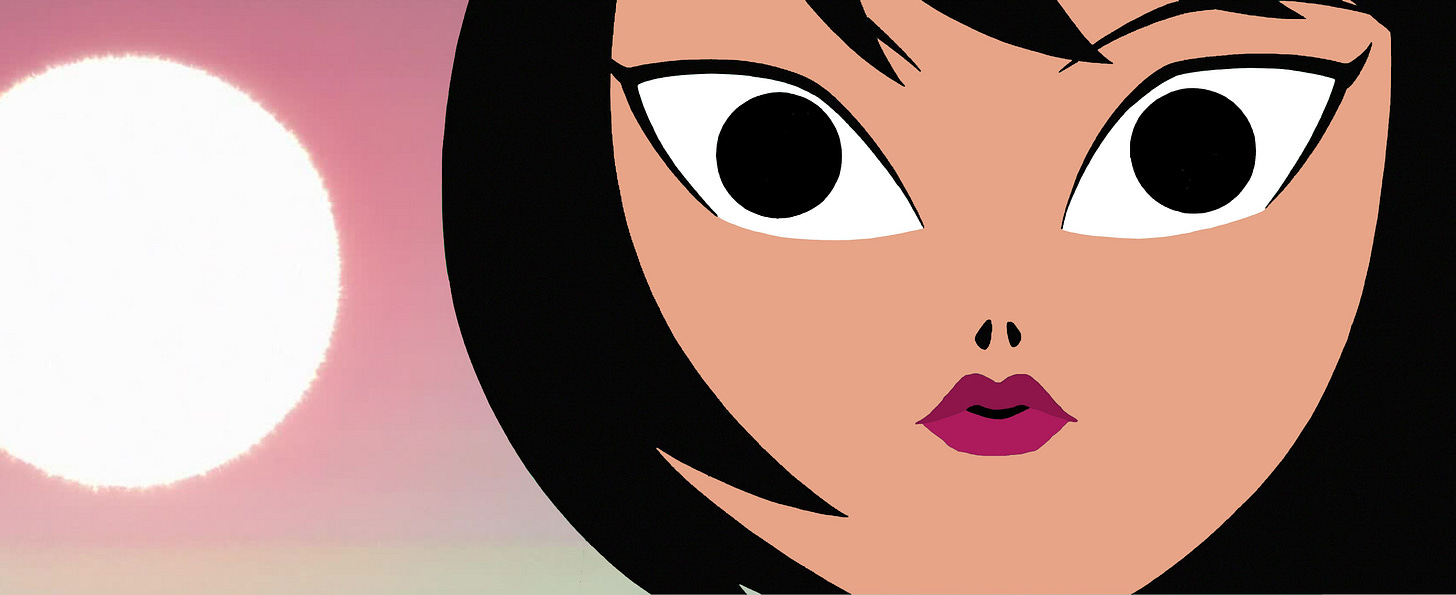
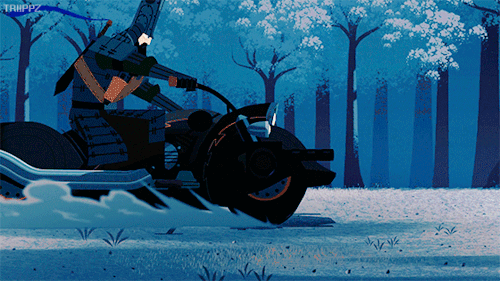

Wow, I never watched this show and now I wonder if I should. The bittersweet ending does sound very Asian, but that's also what they were going for. There's really no happy endings when it comes to time travel. I present to you Stein;s Gate as an example. But boy, do you have room to explore courage, morality, and the cost of faith!
Did you read the comic line that came out for awhile?